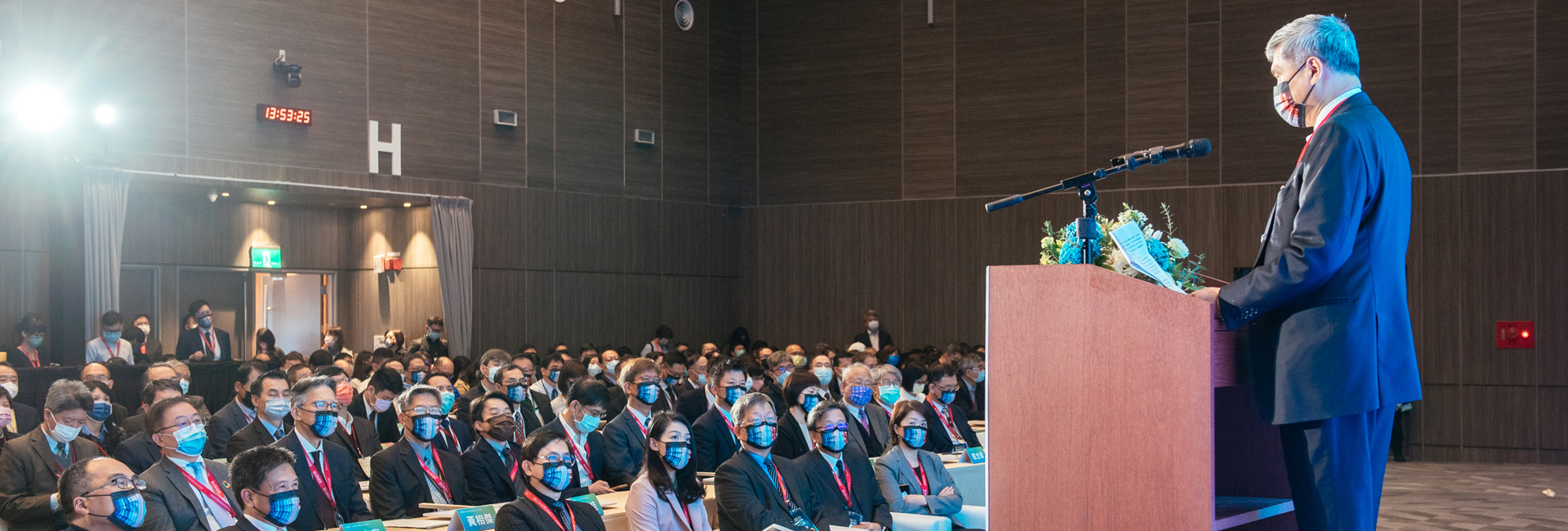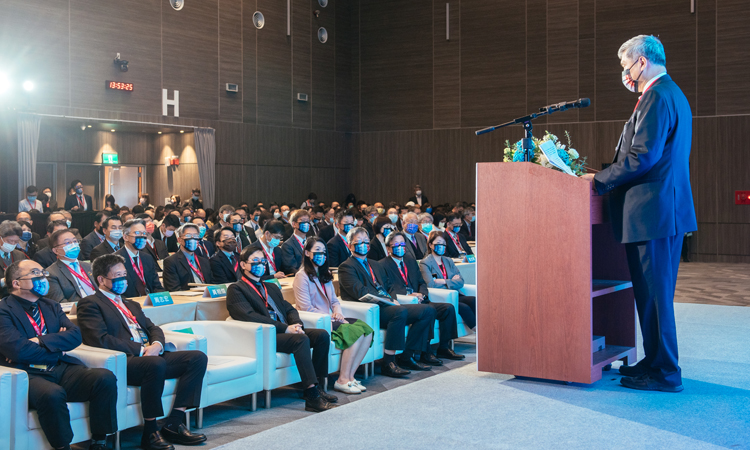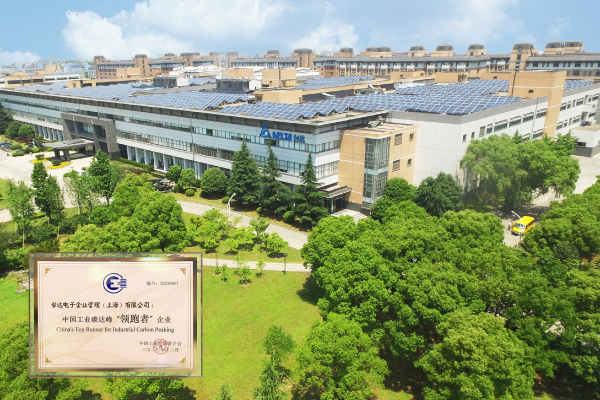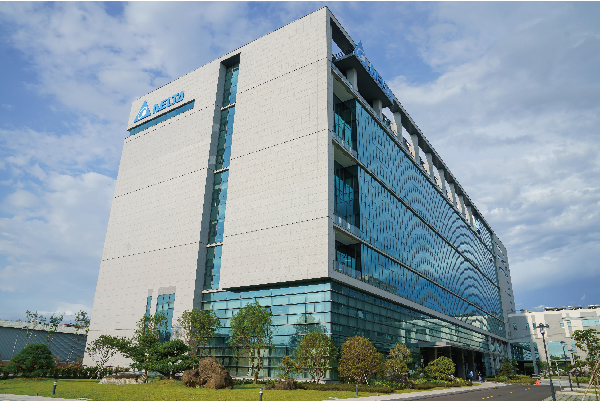As a critical member of the industry supply chain, Delta has long been concerned about climate change and global warming issues, actively implemented innovative energy conservation, carbon reduction, and low-carbon measures, and successfully met the carbon reduction requirements of important international sustainability initiatives and major brand clients. On the one hand, as Delta has developed into a total solution provider, the scale of our supply chains continues to expand to thousands of suppliers. With the long-term net zero goal by 2050 (Note 2), it is imperative to promote supply chain sustainable development.
A supply chain ESG committee is established to assist suppliers in promoting sustainable development Delta's supplier partners are all over the world, mainly raw material or component suppliers, agents, and outsourcing companies. Most of them are small- and medium-sized enterprises. Compared with large enterprises with well-developed systems, they rely on their own efforts to implement energy conservation, carbon reduction, and sustainable development measures; thus, the process is more challenging. Therefore, Delta established the Supply Chain ESG Committee under the ESG Committee in 2018 to integrate the global procurement systems to jointly facilitate Delta's supply chain sustainability management. The committee is chaired by the director of the Global Supply Chain Management Division, with the procurement managers of business groups as the committee member, and an executive secretary is appointed to be responsible for the overall planning and implementation of the six major projects, including "amendment of rules/management regulations", "supplier evaluation", "procurement platform function enhancement", "waste reduction management", "communication and education", and "special issue management". The Corporate Sustainability Development Department, with its experience in providing consultation services to external entities and promoting long-term ESG projects, serves as a consultation team and provides free education and training and third-party resources to help the supply chain keep abreast of the latest sustainability trends and put them into practice in daily operations.
To enhance suppliers' ESG performance and capabilities and align them with international ESG trends, Delta has formulated the Supplier Code of Conduct as a guideline, with the Responsible Business Alliance (RBA) Code of Conduct as the main framework and integrity, labor and human rights, and the environment as the main management topics, while particularly including a chapter on climate change based on Delta’s experience to actively guide suppliers to carry out their low-carbon transition programs, require them to quantify carbon emissions through carbon inventories, take actions to reduce carbon emissions from operations, and motivate them to provide data on the ratios of greenhouse gas emissions to the use of renewable electricity. Meanwhile, Delta analyzes supplier ESG risks and identify opportunities therefrom through the Annual Delta Supplier ESG Management Survey. Furthermore, it has included carbon-related issues in the code of conduct, including the ISO certificates for greenhouse gas inventory and carbon footprint, and added ESG performance evaluation to the four stages of supply chain management*3, as an incentive to select suppliers with the best performance and the most substantial progress to motivate them to make continuous improvements.
Education and training are adopted to improve supply chain resilience and ability to cope with climate change Delta also works with external consultants to provide suppliers with ESG coaching, education and training resources and assist them in gradually adopting ESG approaches and transitioning smoothly, including enhancing their resilience and ability to cope with climate change risks. The approaches include guiding suppliers to conduct carbon inventories, interacting with first-tier suppliers who continue to account for more than 90% of Delta’s purchases on issues, such as climate change, and providing Delta’s experience in energy conservation and carbon reduction to help them reduce greenhouse gas emissions at each stage, in order to help such suppliers to pass the ISO14064-1 greenhouse gas inventory standard by 2025 as our short-term target.
Delta's energy conservation and carbon reduction expertise and technologies are also a major boost to forming a sustainable supply chain. In 2021, Delta launched a sustainable supply chain collaboration program to assist its long-term suppliers in examining their energy conservation performance and planning improvement projects. During the process, Delta matched them with its energy conservation products and solutions, such as energy management systems and smart plant energy conservation systems. By establishing an energy conservation paradigm, Delta has guided the overall supply chain to continuously make improvements and progress.
Facilitated by the international net-zero trend and Delta's and suppliers' joint efforts, suppliers' ESG performance and the number of companies that have adopted a greenhouse gas inventory mechanism have increased year by year. The number of suppliers participating in Delta’s annual ESG education and training doubled from about 200 in 2021 to about 400 in 2022. To respond to participants' positive responses and interactions in class, Delta has even held more QA courses to meet their needs. Moreover, the supplier ESG questionnaire response rate has increased and their responses improved as well; therefore, reaching the 95% response rate target by 2025 is around the corner. Suppliers’ energy conservation and carbon reduction performance have also continued to improve. Take a semiconductor manufacturing company as an example, its overall investment in energy conservation improvements is nearly US$1.8 million, and the electricity consumption reduced per year is about 14 million kWh, which is equivalent to an amount of US$1.15 million saved per year. The effect is remarkable.
Delta aligns supply chain management with the international standards and works with the technology industry to facilitate carbon reduction in the ICT industry Delta's supply chain ESG management has received continuous recognition from major international sustainability indexes, including DJSI, MSCI and CDP. Delta also launched the Taiwan Climate Partnership with seven other leading technology companies in Taiwan. Chairman Yancey Hai was elected as the first chair of this organization. It is hoped that partners' strengths will be combined to further integrate resources, facilitate carbon reduction from the ICT supply chains, and extensively exchange ideas with international organizations, thereby leading the technology industry's low-carbon transition in Taiwan and accelerating the progress toward the 2050 net zero goal.
Delta and its supply chains have formed the most critical strategic partners. In addition to providing clients with valuable products and services, Delta cares about society and the environment and strives to live up to the business mission of "to provide innovative, clean and energy-efficient solutions for a better tomorrow". Furthermore, Delta continues to invest in low-carbon transition and in-depth decarbonization management internally and develops innovative products and services. Meanwhile, it plans to establish a product carbon footprint system and a material carbon emission database to help further reduce product carbon footprint in the next stage and contributes to the development of a sustainable supply chain.
Note 1: Source: The CDP Global Supply Chain Report, published in February 2022.
Note 2: Delta's long-term strategy and goal of achieving net-zero emissions at the operating sites around the world by 2050 has been officially approved by SBTi at the end of 2022, making Delta the first in the high-tech hardware industry in Asia and the 125th in the world to have passed the SBTi's Corporate Net-Zero Standard. Delta's short-term target is to reduce greenhouse gas emissions (Scopes 1 and 2) by 90% and those from the upstream and downstream value chains (Scope 3) by 25% by 2030 compared to 2021. This target is more aggressive than that by 230 required by SBTi.
Note 3: Delta's supplier management is divided into four stages: new supplier selection and recognition, continuous ESG risk management, performance evaluation and supplier engagement, and long-term improvement effect assessment.




















